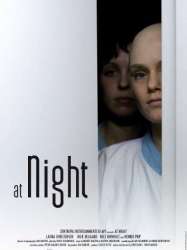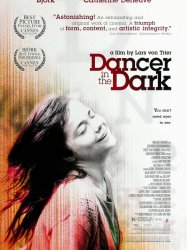Zentropa

If you like this company, let us know!
Foundation date 1 january 1992
Zentropa or Zentropa Entertainments is a Danish film company started in 1992 by director Lars von Trier and producer Peter Aalbæk Jensen.
It has produced over 70 feature films and has become the largest film production company in Scandinavia. It owns a number of subsidiary companies in Europe.
Zentropa may be best known for creating the Dogme 95 movement, leading to such acclaimed films as Idioterne (1998), Festen (1998) and Mifunes sidste sang (1999).
It was the first mainstream film company to produce hardcore pornographic films for women: Constance (1998), Pink Prison (1999), HotMen CoolBoyz (2000) and the adult/mainstream crossover feature All About Anna (2005).
Zentropa is also responsible for creating a large studio complex called Filmbyen (Film City), where both Zentropa and many other film-related companies are located.
Zentropa is named from the train company Zentropa in the film Europa (1991), which started the collaboration between Lars von Trier and Peter Aalbæk Jensen.
Best films
Filmography of Zentropa (49 films)
Distribution

The Salvation (2014)
, 1h26Origin United-kingdom
Genres Drama, Western
Actors Mads Mikkelsen, Eva Green, Jeffrey Dean Morgan, Michael Raymond-James, Eric Cantona, Jonathan Pryce
In 1870s America, a peaceful Danish settler's wife and ten year old son are murdered. The father kills his family's murderers which unleashes the fury of a notorious gang leader. His cowardly fellow townspeople then betray him, forcing him to hunt down the outlaws alone.

At Night (2007)
, 39minutesDirected by Christian E. Christiansen
Origin Danemark
Genres Drama
Actors Laura Christensen, Henrik Prip
Three young women between the ages of 18 and 20 have been diagnosed with cancer. In the days between Christmas and New Year, the three girls manage to deal positively with the situation thanks to the company of each other.

The Five Obstructions (2003)
, 1h30Directed by Lars von Trier, Jørgen Leth
Origin Danemark
Genres Drama, Documentary, Anthology film
Themes Films about films, Seafaring films, Films about sexuality, Transport films, Films about prostitution, Documentary films about business, Documentary films about the visual arts, Documentary films about the film industry, Documentaire sur une personnalité, Documentary films about prostitution, Documentary films about films
Actors Patrick Bauchau, Jørgen Leth, Lars von Trier, Alexandra Vandernoot, Anders Hove, Bent Christensen
Lars von Trier prétend que le court-métrage Det perfekte menneske de Jørgen Leth sorti en 1967 est son film préféré. Dans le but de lui rendre hommage, mais d'une manière perverse, à la fois manipulatrice et créatrice, il propose à l'auteur du film original, son compatriote Jørgen Leth, de détruire et de reconstruire autrement ce court-métrage. Il défie Leth d'en tourner cinq remakes. Pour chaque projet, il lui impose de nouvelles « obstructions », consignes, restrictions, interdictions plus ou moins arbitraires, l'obligeant à repenser l'histoire, l'esthétique et les personnages de son film. Il s'ensuit à chaque épreuve un feed back entre les deux hommes où Lars von Trier, dans une sorte de position de « directeur de conscience », à la limite de l'humiliation, semble prendre à cœur de déconstruire et détruire ce que Jørgen Leth a réalisé.

Credo (1997)
, 1h27Directed by Susanne Bier
Origin Danemark
Genres Thriller
Actors Sofie Gråbøl, Ellen Hillingsø, Sverre Anker Ousdal, Stina Ekblad, Ghita Nørby, Ulrich Thomsen
 Connection
Connection





